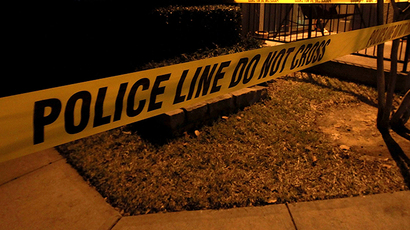Fetal 'Stand Your Ground' bill advances in South Carolina, spurs controversy

South Carolina lawmakers advanced a “Stand Your Ground” bill this month that would allow pregnant women to use lethal force to protect their fetus. Opponents say the bill would give more legal protections to a fetus, thus weakening reproductive rights.
The South Carolina Senate Judiciary Subcommittee voted 3 to 2 earlier this month to expand on the state’s existing “Stand Your Ground Law,” which already allows use of deadly force to protect against “imminent peril of death or great bodily injury,” to include protection of “unborn children,” defined as “the offspring of human beings from conception until birth.”
Supporters of the "Pregnant Women's Protection Act" say the existing Stand Your Ground law does not go far enough to protect a pregnant woman from attacks that could harm their fetus.
Opponents of the effort say that not only is the proposal redundant, considering the existing lethal-force law, but that it will grant more legal rights to a fetus, defining life as beginning at conception, thus posing a threat to birth control methods, in-vitro fertilization, emergency contraception, and other basic health and reproductive rights.
"These bills like to define a human being as a 'person' at fertilization, which would create a variety of restrictions that would limit the reproductive and family building choices of hundreds of thousands of South Carolina residents," said Dr. Michael Slowey, a reproductive endocrinologist and founder of Coastal Fertility Specialists in Mount Pleasant, South Carolina.
"Specifically, these bills would put an end to our ability to perform in-vitro fertilization, provide contraception and effectively treat abnormal pregnancies, including life-threatening ectopic pregnancies."
Reproductive rights advocates say they have seen similar bills pushed around the nation as a sort of back-door strategy to advance controversial “personhood” rights for fetuses. Several attempts in the past to pass personhood bills in the South Carolina Legislature have failed.
"We would have for the first time a law that specifically defines pregnancy and life as beginning at conception, and that is very important language for people who want to ban abortion - which would then be equated with murder," said Marcia Zug, a University of South Carolina law professor, during a state Senate hearing that focused on legislation that defined life as beginning at conception.
"This bill is unnecessary for any reason other than to challenge the legality of abortion," Zug added, according to Courthouse News.
Zug pointed out that the state’s existing Stand Your Ground law already goes a long way in protecting a fetus.
"South Carolina already has a very robust Stand Your Ground law,” she said. “There was the argument that there is a possibility that a woman could be defending her unborn child but not her own life. Most attacks that would harm a fetus would be [dangerous] enough to harm a woman and she would be able to use current protections."
According to ThinkProgress, at least 36 states have some kind of fetal homicide law that allow for prosecution of crimes against pregnant women that resulted in the loss of a fetus. While this kind of legislation is often written to leave abortion out of the equation, anti-choice groups like Americans United for Life have pressed for broader legal protections in these laws.
"No one disputes that violence against pregnant women is a concern in our state, and few would deny the need for swift action to stop any instances of further violence," Emma Davidson, a spokeswoman for New Morning Foundation, told Courthouse News. "But it is hypocritical to introduce legislation claiming to protect victims of domestic abuse, rape and violence while simultaneously outlawing emergency contraception, a key treatment option for those victims."
Two other states, Arkansas and Oklahoma, allow use of deadly force by pregnant women in self-defense situations, though “what makes the South Carolina bill so different is that it's the first time this sort of bill would be added into the Stand Your Ground law,” said Elizabeth Nash, of the Guttmacher Institute, according to Courthouse News
Stand Your Ground laws have been linked to vigilantism, encouraging people to escalate potentially dangerous situations. The laws have also shown to exacerbate already existing racial disparities in the criminal justice system. The Urban Institute’s Justice Policy Center has found that white-on-black homicide is 354 percent more likely to be justified in court than white-on-white homicide. Nor is it even clear that such laws actually help keep pregnant women safer.
South Carolina Sen. Katrina Shealy, sponsor of the bill, did not respond to requests for comment from Courthouse News.














